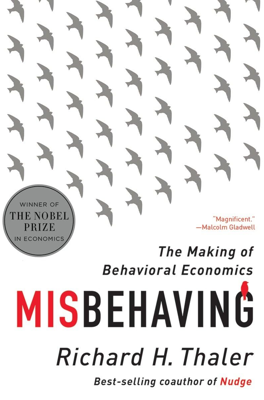Game Shows
Insights from Game Shows and High-Stakes Decisions
Richard Thaler explores the intersection of behavioral economics with reality TV game shows, addressing the skepticism around behavioral anomalies not replicating in real-world, high-stakes scenarios. Utilizing data from the Dutch TV show "Deal or No Deal," Thaler and his colleagues test economic theories, such as prospect theory and mental accounting, under high-stakes conditions.
Key Insights from Deal or No Deal: - High Stakes and Risk Aversion: Contestants, contrary to expectations of extreme risk aversion, frequently rejected safe cash offers, opting to risk significant sums (often hundreds of thousands of euros). This observation challenges the assumption that higher stakes always lead to more conservative choices, a concept also related to discussions around the equity premium puzzle. - Path Dependence: Contestants' decisions were influenced not merely by the current choices available but also by their previous gains or losses. This was evident in their risk behavior, where contestants displayed increased risk-seeking behavior when they felt ahead ("house money effect") or behind, striving to break-even or win big.
Behavioral Patterns in High-Visibility Settings: Further exploration was conducted into whether being observed impacts decision-making, using a controlled experiment with students who either participated in a simulated game show environment or made decisions privately. Contrary to Thaler's initial hypothesis, participants were more risk-averse in public settings, although similar patterns of path dependence were observed as in actual game show conditions.
Exploring Cooperation in Game Theory Through Golden Balls
The British game show "Golden Balls" provides a platform for studying cooperation in a high-stakes version of the Prisoner’s Dilemma, referred to in the show's finale as "Split or Steal." Contestants decide to either split their accumulated prize or attempt to steal all which results in: - Both splitting: They share the prize. - One splitting, the other stealing: The stealer takes everything. - Both stealing: Nobody wins anything.
Findings from Golden Balls: - Stakes Impact on Cooperation: Cooperation rates generally decrease as stakes increase but maintain around 40-50%, a figure resonant with outcomes from lower-stakes experiments. - Big Peanuts Hypothesis: Cooperation rates are anomalously high at unusually low stakes compared to the show's average—posited to occur because the sums involved feel trivial or like "big peanuts," encouraging more cooperative or altruistic actions due to reduced perceived risk.
Unique Strategies and Human Behavior in Golden Balls
A notable episode featured a contestant named Nick, who devised an unconventional strategy by promising to steal but sharing the winnings, aiming to convince the other player to split, ensuring a favorable outcome for himself. This tactic showcased the complex psychological maneuvers individuals may use, influenced by the specific rules and social dynamics of the game.
Conclusion and Implications: Overall, these observations from game shows not only challenge the notion that higher stakes negate behavioral anomalies observed in experimental settings but also enrich understanding of human behavior in decision-making scenarios that involve substantial risk, public scrutiny, and strategic interaction. These insights are pivotal for refining economic models that more accurately reflect real-world human behavior, both in everyday decisions and in high-pressure, high-stakes environments.
